That viral LinkedIn post, everyone is suddenly a sportsball maniac, creator economy + vibecession
with a side of random links
Greetings and happy Thursday (or Friday to the Australians!). I had a mid-summer break last week.. allow it. HAPPY OLYMPIC SEASON y’all. Its one of the moments in the calendar where i absolutely LOVE to root for Australia and repeatedly post obnoxious medal tally screenshots of us leading over USA on my IG stories. ANYWAY- onto the tidbits-
The Nike LinkedIn post that set off a flurry of schadenfreude engagement and a call for a lil self reflection
For those amongst us working in ~the biz~ (Marketing) (i’m sorry if you don’t, but maybe this will interest you anyway), you’ve likely seen this post going semi-viral and crossing over from LinkedIn to just about any channel that will allow it. It’s one (former Nike Brand Marketer) man’s opinion about the rolling layers of errors that have occurred since the current Swoosh CEO took the helm. It’s refreshing because it is mostly true and senior marketers usually aren’t this publicly thorough or candid, certainly not on LinkedIn where honesty goes to die. That said, I think there’s plenty of pieces missing from his analysis, and i personally see more truth in this youtube from Jordan Rogers (another former Nike Brand Marketer) describing Nike’s current lull as ‘death by 1000 papercuts’ vs a simple, distilled list with two individuals to blame. The funniest thing about The Nike Conversation taking place is that it is a bit of a rorschach test for people in the industry; some will, and have, turned it into a brand vs. performance argument (this is a little bit of a misrepresentation imo, Nike’s proportionate investment on Brand exceeds MANY other competitors even while allocating more to performance). Some will turn it into a ‘over-investment in lifestyle, neglect of performance product’ problem. Some will say its because Nike ‘lost running’ (which has long been a small category within the business, compared to Sportswear or Jordan). Wholesale vs. D2C. John Don himself turned it into a ‘remote work sucks’ discussion. You get the gist. The Nike dilemma is basically a mirror for whatever issue one wants to telegraph or project onto the storied Swoosh. The fact anyone even gives a shit about this is proof positive of the lasting equity of the brand.
I think there’s also a reality in our business that people love to see the giants fall. So many people got way too hot going at Apple after that horrendous iPad crushing ad. I’m not saying that Apple didn’t blow it and that Nike hasn’t let shareholders and a goofy Big Consulting guy absolutely rip the soul out of the company, but it’s just interesting to observe. When our favorites fall, I don’t know if anyone is for the better for it.
Beyond the post and what it said, here are some additional questions i’d have-
What happens when you make it so your most devoted customers literally cannot buy the product?
What happens when you court, control or inadvertently endorse the resell market for years and then proceed to tank it?
If your mission is to serve athletes, does that mean only shoes forever? What else do athletes need in 2024?
As an innovation company, how’s your tech stack looking?
Is the best talent in the world in Beaverton, Oregon? If they are, do they want to be there?
I believe most things are cyclical and that Nike is in a weird stage. We’ve been in a similar-ish space before culturally. I enjoyed this piece on the Roshe Run, and more specifically how quickly it went from downtown darling to the shoe of choice for your ‘most swagless homie’; we’re talking about a stretch between 2011-2014, which i would argue subsequently lead to a later crest of ‘post-sneaker world’ discourse in the latter 2010’s. When things become deeply saturated (e.g high heat sneakers, Roshe Runs or Jordan 1/Retros), there’s always a backlash, especially with those who drive the conversation. Whether its 2014 or 2024.
On the flipside, there is a great write-up about New Balance here from BOF, who are aiming to be a $10bn company over the next few years. Crucially, New Balance are privately held and not beholden to ‘shareholders’.
We’re all in love with Sports ok. This is our new reality.
It’s Olympic season which means Sports are DEEPLY in the zeitgeist. There’s a few interesting things at play!
Morning Consult (I always take them with a grain of salt, but still) recently reported a significant uptick in exercise across the board- “Even more interesting is that this trend holds true for Americans of every age and gender — a rarity in survey research. The shares of men, women and members of each generation who report engaging in regular physical activity have each grown by at least nine percentage points since the start of 2023.” I’ve hypothesized before I think that people are lonely, seeking community, or even just getting practical about self-engineering the boost of endorphins that exercise brings.
Culture is getting more fragmented, which means we have fewer opportunities of shared cultural experiences, especially in HBO offseason. I was chatting with Ana Andjelic about this a week or so back and we were both saying Sports is like the last standing monoculture. This might be why there was such a crop of Sports-focused activations at Cannes this year, or why the Olympics have turned into a new Fashion Marketing ad surface. Alec Leach touched on this in a recent piece: “Almost every part of our shared culture is a space for branding now, and it sucks… We are not supposed to be spending every waking moment of our precious lives thinking about energy drinks and moisturizer. The Olympics are one more part of our shared culture for brands to conquer.”
In USA, ratings for the olympics are way up, clocking the best views they’ve had in 12 years.Womens sports in particular is getting way more attention than it previously has, which expands viewership and engagement by default. I’m loving how much people are adoring the USA Womens Rugby team in particular. Alexis Ohanian wrote a good thread about womens sports here - he has been beating the drum for a long time.
I sense a Dazed trend report on the horizon so you know its real.
A prediction on subcultures, influencers, — i.e the creator economy might have been a ZIRP bubble
I’m noodling on what’s happening in the labor market presently, and my early prediction is that what is currently happening in big tech (mass layoffs, ‘white collar recession’, long, long term unemployment) is a precursor to what will happen to Influencers. I saw one astute Silicon Valley observer explain the current wave of unemployed tech companies with the simple explanation “these companies hired a lot of people they don’t need.” So do we need the amount of creators we have? hear me out:
this matters because most creators make a living off collabs, brand deals etc, and plenty of signs are pointing to a flagging US consumer and softening ad spend. If regular people are buying less stuff, and brands aren’t spending much money on ads.. where will the creators get their bucks?
See also, the desire built into social media to be ‘a potential producer of culture’:
Honestly, go watch the whole video here, it’s well worth it. He talks about the tension of culture as producers vs. observers. This dovetails a bit with the question Chris Black asked a while ago ‘Do We Really Need More Creators?’- “because of social media and idea peddlers like breathwork-loving super producer Rick Rubin, young people who just want to film themselves getting dressed and drinking out of Stanley mugs can think of themselves as “creatives.” I also love the point being made in the video above about how people can be a part of culture by just enjoying it, you don’t have to be a model or a ‘somebody’. It connects directly with a conversation I saw playing out on TikTok this week between Rian Phin and a few other folks, who ultimately stated they preferred fashion analysis from outsiders, who can bring their own life and lens to pieces and have a new take that isn’t just regurgitated facts about brands. ‘Outsiders’ make culture successful - in so many ways.
 Tiktok failed to load.
Tiktok failed to load.Enable 3rd party cookies or use another browser
Anyway - I think the slowdown in consumption for consumptions’ sake that has fueled the influencer industrial complex will actually be a boon for ‘real’ subcultures, art, and thoughtful discovery. If corporate interests and consumerism were underlying the past ‘creator economy’ wave, whatever lies on the other side might be more interesting.
Extremely my sh^t: Why Vibes Are A Legitimate Economic Indicator

The famous Kyla Scanlon (who coined the term ‘vibecession’) has published a book titled “In This Economy?”, and a great newsletter reviewed it here: I will report back on findings of the book once I actually read it, but here’s a teaser;
“The idea that emotions play a role in the economy isn’t new. My more economics-oriented readers could consider vibes as a term loosely adjacent to consumer sentiment or Keynes’s notion of the animal spirit.
Her concept has more depth than those theories. I would characterize economic vibes as collective feelings in the digital age. Almost all previous versions of economic theory around consumer sentiment have been formed in a pre-internet world. When I emailed Scanlon about how she would compare her theory to Keynes's, she told me, “Keynes is around fundamentally psychological forces that drive economic decisions, whereas vibecession is a disconnect between data and sentiment.”
Lil random link round up -
The Death of The College to Corporate pipeline by the inimitable Laura Pitcher - young people are quitting their thankless office jobs for lower paying alternatives that give them time and space to enjoy their life
Pharrell is advocating for bringing art back to the Olympics
Nike’s new shoe, the C1TY - I like it.
Owning a reformer as the ultimate luxury.
You know we love casting the elders around here.
Strava + REI are doing a steps challenge:
toodles!
GG x



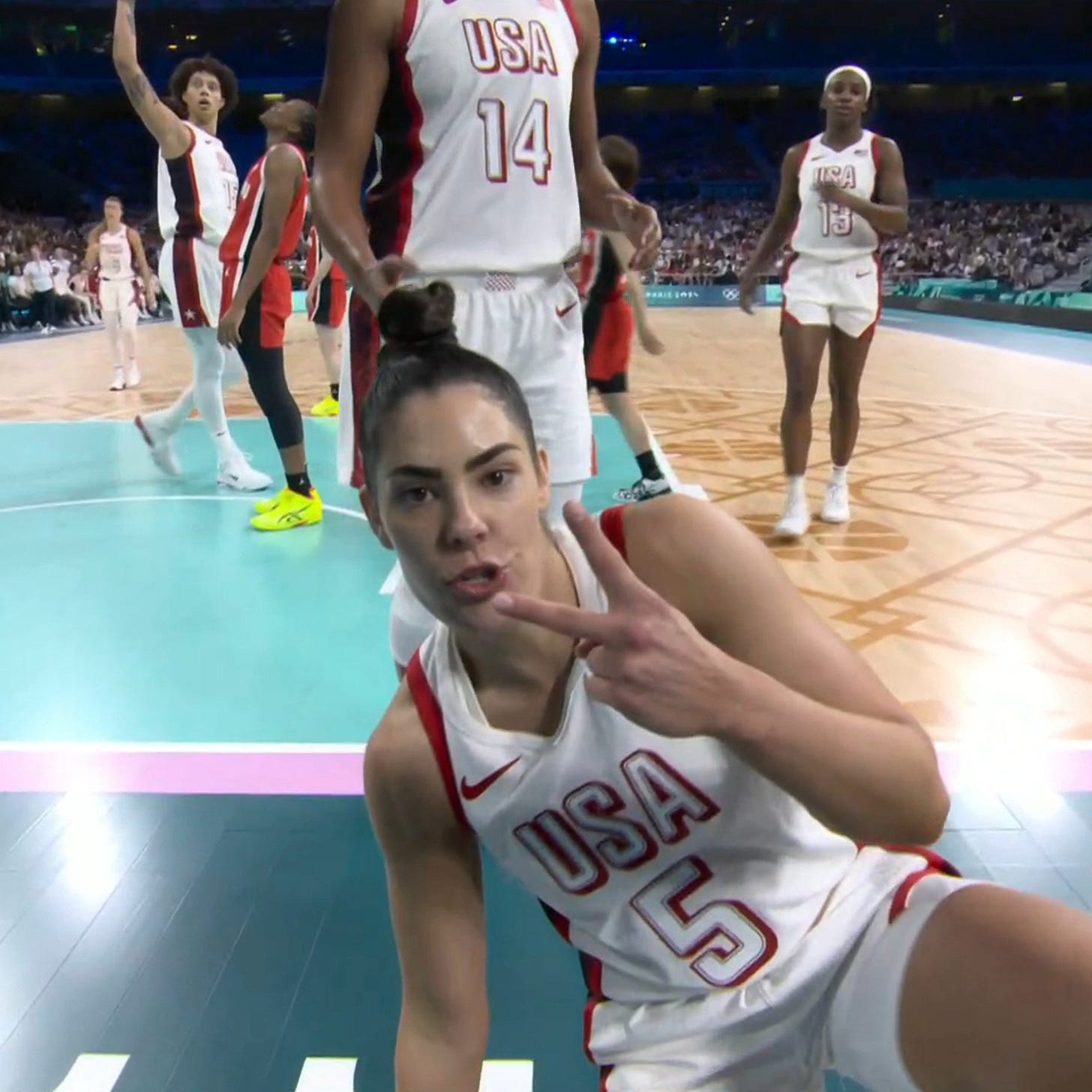
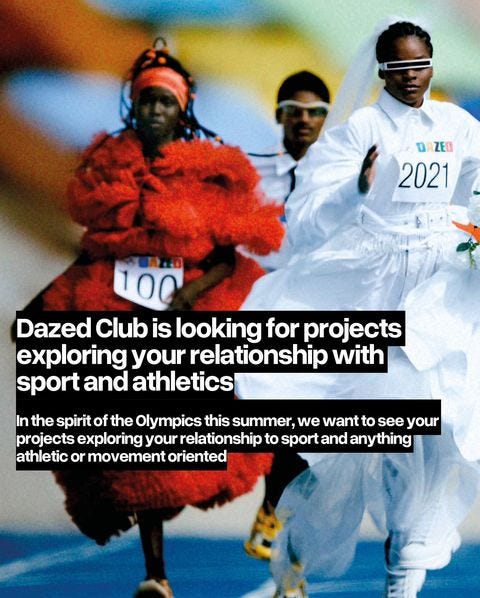
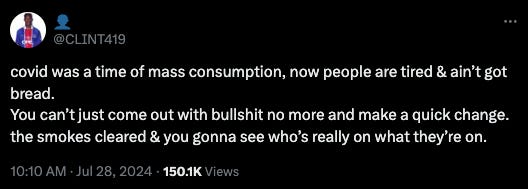


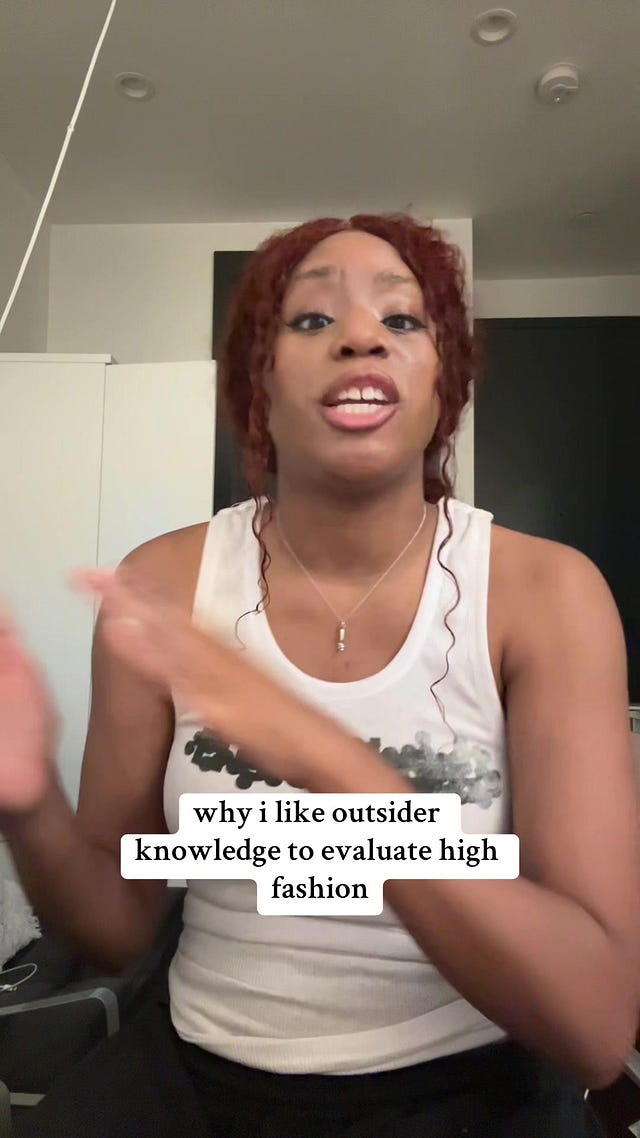
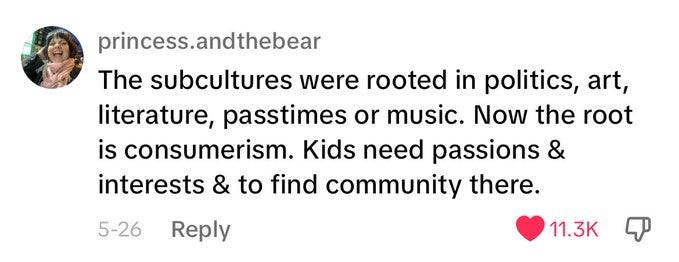


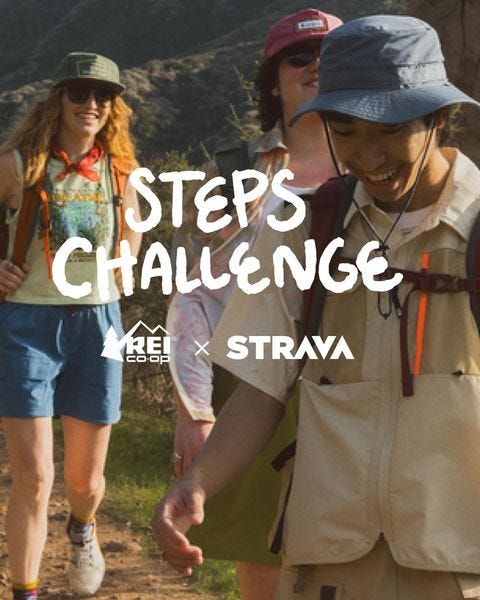
Roshe article took me backkk
“Is the best talent in the world in Beaverton, Oregon? If they are, do they want to be there?” - until they realize that the obvious answer to this is ‘no’, and that people today are much less likely to compromise their personal desires for a corporate gig (which they may be laid off from in a couple years), I’m not very optimistic about a comeback. Talent is everything.